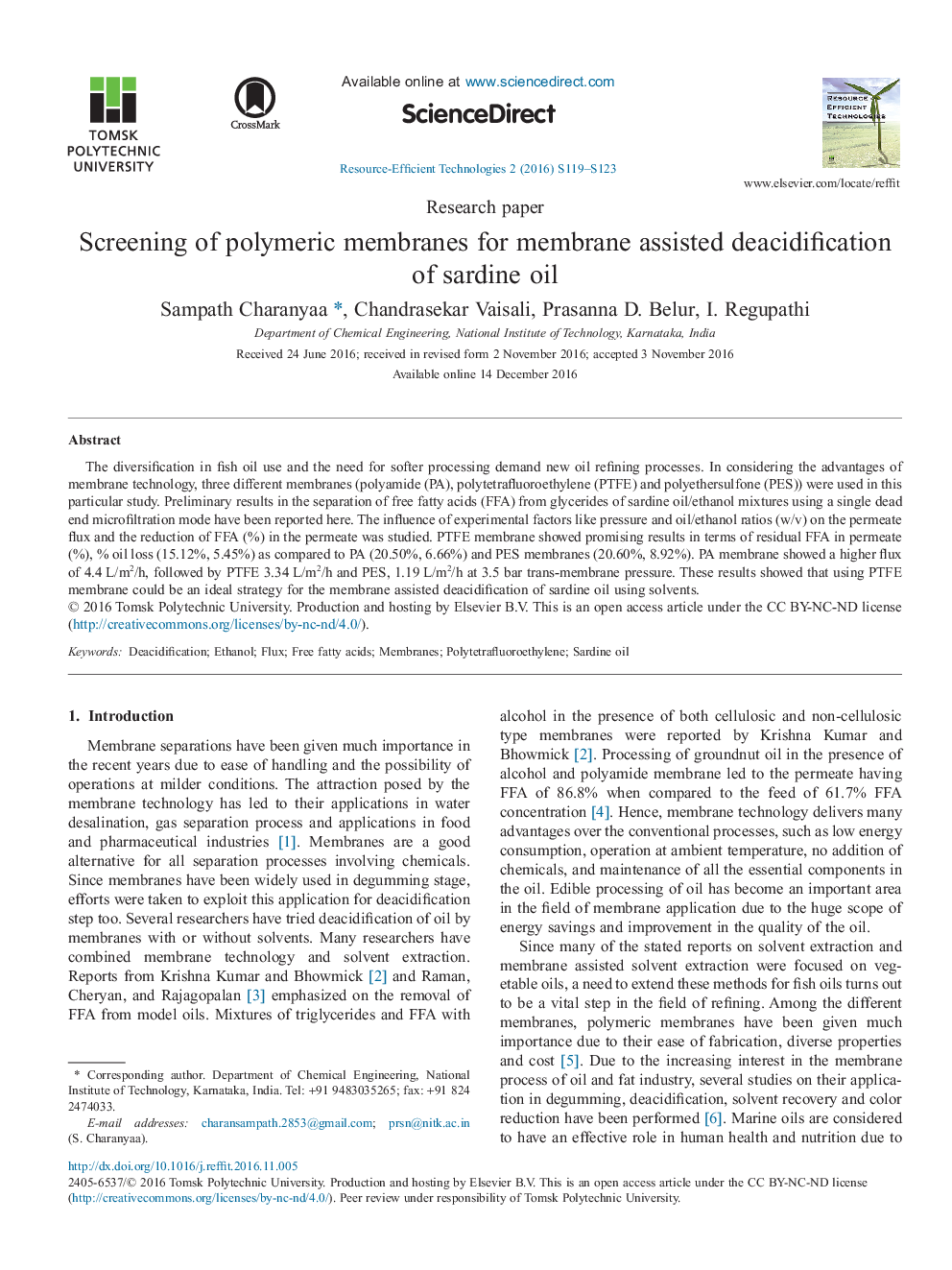| Article ID | Journal | Published Year | Pages | File Type |
|---|---|---|---|---|
| 5749692 | Resource-Efficient Technologies | 2016 | 5 Pages |
The diversification in fish oil use and the need for softer processing demand new oil refining processes. In considering the advantages of membrane technology, three different membranes (polyamide (PA), polytetrafluoroethylene (PTFE) and polyethersulfone (PES)) were used in this particular study. Preliminary results in the separation of free fatty acids (FFA) from glycerides of sardine oil/ethanol mixtures using a single dead end microfiltration mode have been reported here. The influence of experimental factors like pressure and oil/ethanol ratios (w/v) on the permeate flux and the reduction of FFA (%) in the permeate was studied. PTFE membrane showed promising results in terms of residual FFA in permeate (%), % oil loss (15.12%, 5.45%) as compared to PA (20.50%, 6.66%) and PES membranes (20.60%, 8.92%). PA membrane showed a higher flux of 4.4âL/m2/h, followed by PTFE 3.34âL/m2/h and PES, 1.19âL/m2/h at 3.5 bar trans-membrane pressure. These results showed that using PTFE membrane could be an ideal strategy for the membrane assisted deacidification of sardine oil using solvents.
Graphical AbstractDownload high-res image (68KB)Download full-size image
